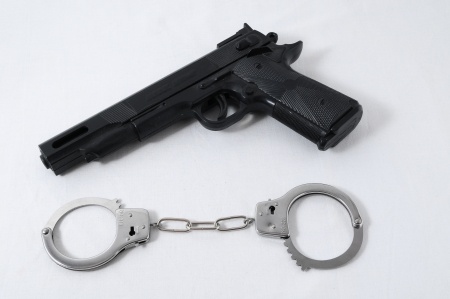On August 12, 2025, a three-judge appellate panel decided the Mercer County case of State v. Malihki Oliver. The principal issue under N.J.S.A. 2C:1-3 concerned the legality of transporting and assembling “ghost gun” kits in New Jersey that were legally purchased in Pennsylvania.
Judge Rose wrote for the Appellate Division in relevant part: Defendant argues the motion judge erroneously agreed with the State’s grand jury instruction that Paragraph k is comprised of two elements when “the Legislature intended one element,” “purchasing with the intent to assemble.” Noting the ghost gun kits were purchased in Pennsylvania, where it is legal to do so, defendant argues Paragraph k only “prohibits purchasing firearm parts in New Jersey for the purposes of manufacturing the firearm without a serial number.” Because the State cannot demonstrate the purchase occurred in New Jersey, defendant asserts the State failed to present prima facie evidence of the elements of the offenses charged in counts one and two of the indictment, and the judge misapplied the territorial jurisdiction statute.
The plain terms of Paragraph k and the territorial jurisdiction statute refute defendant’s contentions. In our view, Paragraph k requires the State prove defendant: (1) purchased a ghost gun kit; (2) acted with purpose to manufacture or assemble a firearm; and (3) was not registered or licensed to manufacture or assemble a firearm in this state. The conduct stated in the first element, the ghost gun purchase, is distinct from the conduct stated in the second element, the actor’s state of mind. Contrary to defendant’s argument, nothing about the language of the statute requires the ghost gun purchase occur in New Jersey or that the first and second elements of Paragraph k constitute a single element.
Accordingly, we are not persuaded the motion judge misapplied the territorial jurisdiction statute. Defendant argues N.J.S.A. 2C:1-3(a)(1) is not applicable to the charges at issue here because “that section requires either the conduct or the result of the conduct be committed in New Jersey.” Instead, defendant contends the exception to territorial jurisdiction under N.J.S.A. 2C:1-3(b)(6) applies because the charged conduct is not a crime in Pennsylvania and the State presented “no evidence that he owned or intended to assemble the firearms.”
Although the evidence presented to the grand jury revealed the purchase of ghost gun kits occurred outside this state, and was lawful in that jurisdiction, the State presented sufficient evidence from which the jury could infer defendant purchased the kits with the purpose of manufacturing firearms in New Jersey, satisfying the culpability element under N.J.S.A. 2C:1-14(h)(3)(b), and territorial jurisdiction under N.J.S.A. 2C:1-3(a). As the motion judge found, the State presented evidence that defendant and Tucker purchased five ghost gun kits with “two slides and two extended magazines” and transported them to New Jersey. Further, they were stopped in defendant’s car in the vicinity of his Trenton address. That evidence and the reasonable inferences that could be drawn therefrom demonstrated defendant’s “purpose to manufacture or otherwise assemble a firearm” in this state, satisfying the second element of Paragraph k.
We therefore discern no error in the DAG’s grand jury instruction that Paragraph k required the jurors to consider two elements, “the purchase and the intent to readily manufacture.” Having acknowledged the purchasing of ghost gun kits was legal in Pennsylvania, the DAG reasonably instructed the jury “the intent was in New Jersey because they brought the kits into New Jersey for the purpose of manufacturing them.”
Ghost guns have no serial numbers or identifying marks. They can be purchased and assembled without background checks. They are therefore difficult to trace.
Most states have no laws concerning ghost guns. California, Nevada, Colorado, Illinois, Maryland, Massachusetts, and Vermont require serial numbers and background checks for the components. Washington, Oregon, New York, Connecticut, Rhode Island, Delaware, and New Jersey require serial numbers, background checks for the components, and ban undetectable plastic and 3D printed guns.
